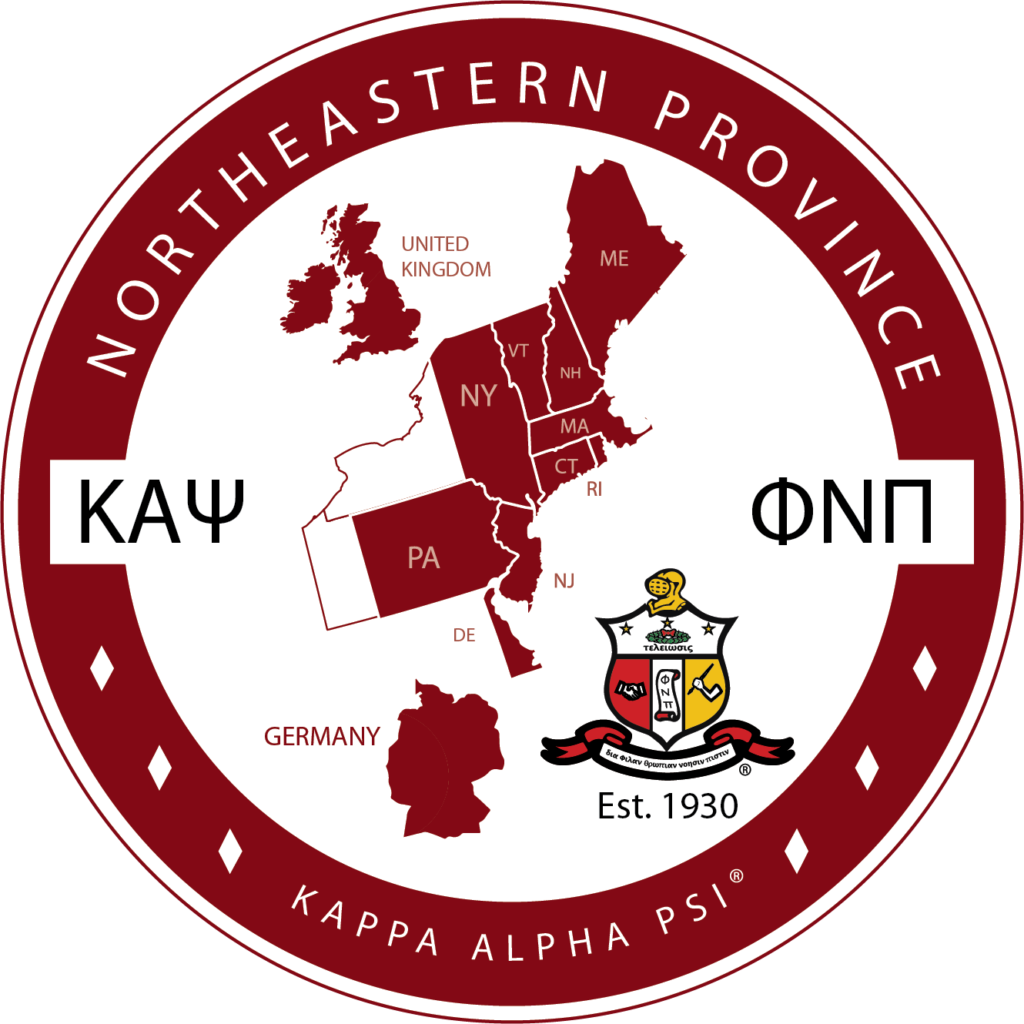FRATERNITY History
A Brief History
Kappa Alpha Psi®, a college fraternity, was born in an environment saturated with racism. The state of Indiana became the 19th state of the Union in 1816, and it founded Indiana University in Bloomington four years later. This city was largely populated by settlers from below the Mason-Dixon line and, therefore, found many sympathizers of the Southern cause. Consequently, the few Blacks who took up residence in Bloomington in those early years were socially ostracized and encountered extreme acts of prejudice and discrimination. The state of Indiana became a stronghold for the Ku Klux Klan. Their intolerance toward Blacks fueled the negative mindset of other Whites residing there. Vigilante lynchings of Blacks were commonplace. This environment made day-to-day life for Blacks an arduous task and attempts to achieve in school nearly impossible. Despite the growing hostility of Whites toward Blacks in Indiana, some Black students sought a college education at Indiana University, as it was a tuition-free university of the highest quality. However, few Blacks could remain longer than a year or so without having to withdraw in search of employment.
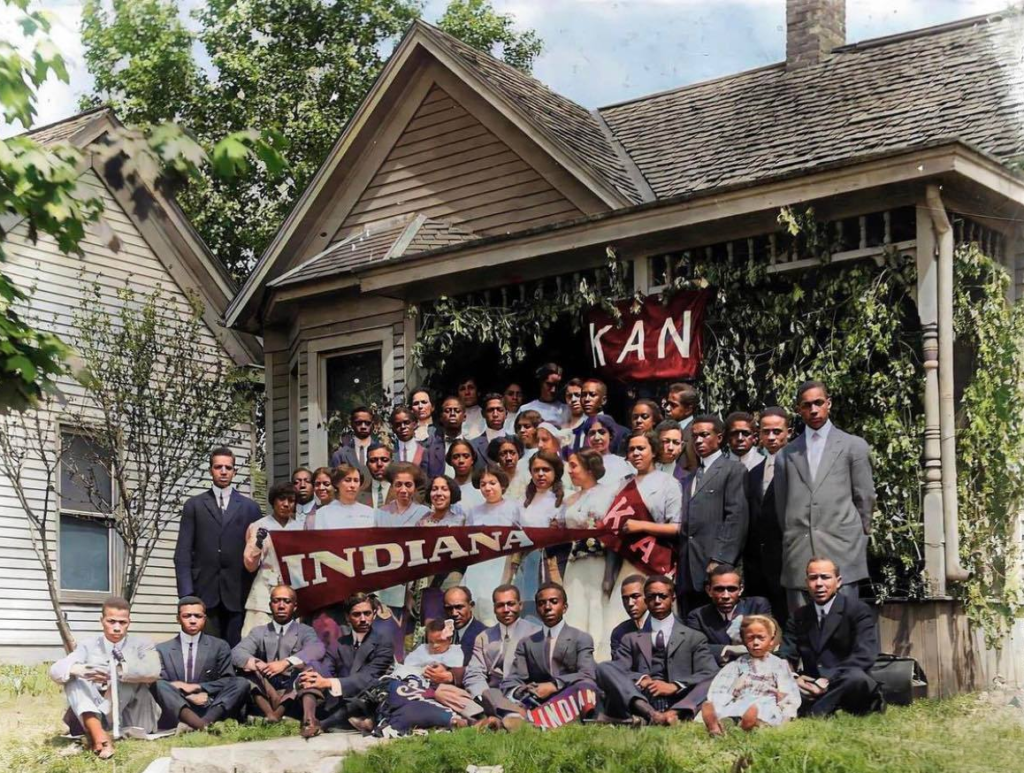
The photo depicts the 1st annual House Party of Kappa Alpha Nu Fraternity, in May of 1911 in Bloomington Indiana, the forerunner of the fraternity’s annual Grand Chapter Meetings.
The campus of Indiana University at that time did not encourage the assimilation of Blacks. The administration maintained an attitude of indifference as Blacks slowly matriculated and were likewise swiftly forgotten. The percentage of Blacks on campus was less than 1%. Blacks could go weeks without seeing one another on campus. Blacks were not allowed to reside in on-campus dormitories, were not afforded off-campus accommodations, were denied the use of all other university facilities, and were barred from participating in contact sports. Track and Field was the only sport in which Black students could demonstrate their athleticism.
In the school years of 1910-11, a small group of Black students attended Indiana University. Most of them were working their way through school. The number of places where they might assemble was limited. Realizing that they had no part in the university’s social life and were drawn together by common interests, they decided that a Greek letter fraternity would do much to fill the missing link in their college existence.
Two of these men, Elder Watson Diggs and Byron Kenneth Armstrong, had previously attended Howard University and had come into contact with men belonging to the only national Black Greek letter fraternity currently in existence. Their experiences at Howard gave rise to the chief motivating spirits that sowed the seed for a fraternity at Indiana University and crystallized the idea of establishing an independent Greek letter organization.
Consequently, eight other men met with Diggs and Armstrong for the purpose of organizing such a fraternity. The charter members were Elder Watson Diggs, Byron K. Armstrong, John M. Lee, Henry T. Asher, Marcus P. Blakemore, Guy L. Grant, Paul W. Caine, George W. Edmonds, Ezra D. Alexander, and Edward G. Irvin. The Founders sought one another’s company between classes and dropped by one another’s places of lodging to further discuss the means of formulating the fledgling fraternity in an effort to relieve the depressing isolation. They found that through these close interactions, they had common interests, and a close bond began to emerge. The organization was given the temporary name of Alpha Omega while they further developed the formation of the organization. Diggs presided as president, while Irvin was assigned as interim secretary of Alpha Omega. Alpha and Omega, the Greek alphabet’s first and last letters, correlate to Christ and the Founder’s relationship and connection to the church.
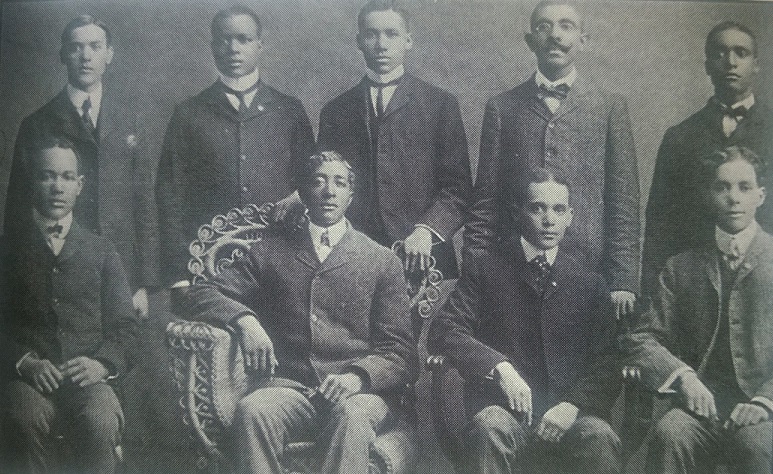
In 1903 a club was formed at Indiana University called “Alpha Kappa Nu Greek Society”. The purpose of the group was to “strengthen the negro voice on the campus. The club was never incorporated and disappeared after a short time.
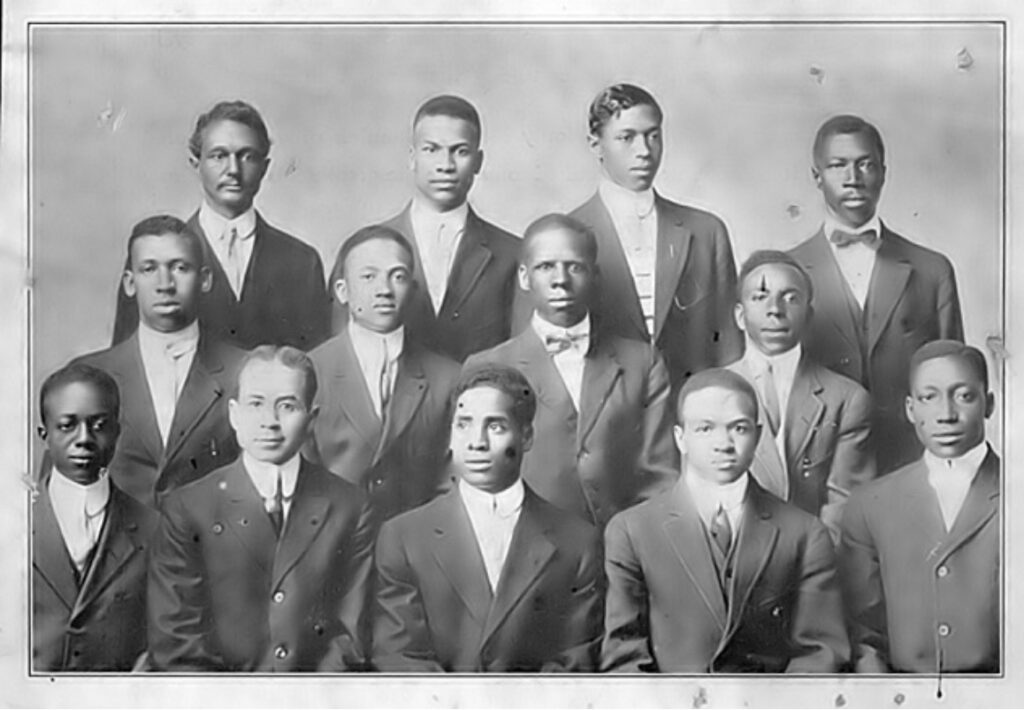
The Alpha Chapter of Kappa Alpha Nu Fraternity pictured in 1913 featuring Founders; Byron Kenneth Armstrong (top), John Milton Lee, Elder Watson Diggs, and Guy Levis Grant (bottom row).
On January 5, 1911, the fraternity was originally known as Kappa Alpha Nu, possibly as a tribute to the Black students of 1903 (the Alpha Kappa Nu Fraternity) who preceded them at Indiana University. These men of vision decided Kappa Alpha Nu would be more than another social organization. It would be the only Greek letter organization founded with the concept of achievement. Kappa Alpha Nu began uniting college men of culture, patriotism, and honor in a Bond of fraternity. The fraternity was primarily founded under the efforts and leadership of the calm, methodical, and philosophical Elder W. Diggs and the critical and scholarly Byron K. Armstrong. Through their combined labors, the fraternity’s ritual and ceremonial forms, constitution, hymn, and motto were created, and insignia and emblems were fashioned. Taking careful attention to detail and ensuring the fraternity was rooted in authenticity, these Founder Diggs took courses in Greek heraldry and mythology and applied their combined knowledge to develop these articles. The idealist John Milton Lee also contributed significantly to the fledgling organization. For their work to establish the fraternity, Diggs was named permanent chairman; Lee was designated as secretary, and Armstrong as sergeant-at-arms. These three Founders are credited with guiding the infant fraternity through the most perilous years of its life. Each of the remaining Founders provided capable assistance by furnishing necessary sustenance to the embryonic group. Kappa Alpha Nu became the first incorporated Black fraternity in the United States once granted a charter by the Indiana Secretary of State on May 15, 1911.
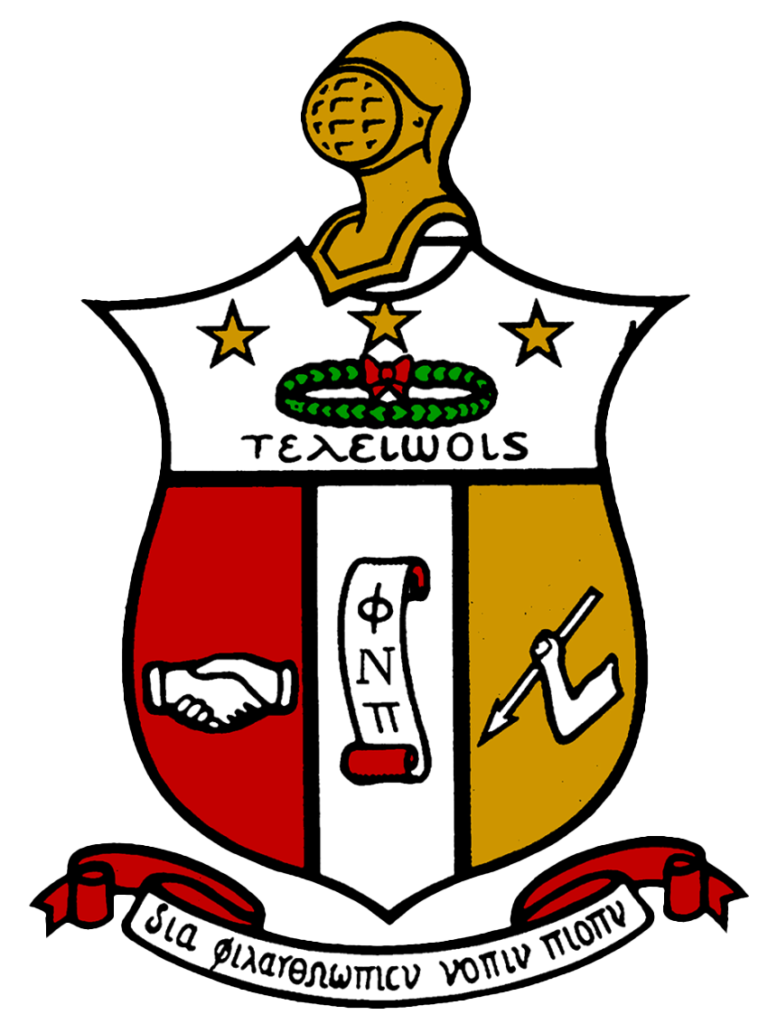
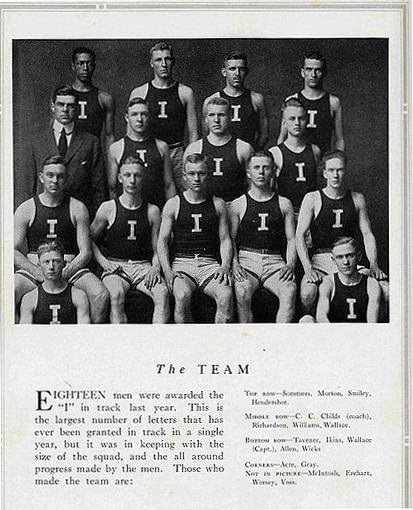
Frank Summers featured in a picture with the Indiana University track club.
Born out of the vestiges of racism, Kappa Alpha Nu encountered another metamorphosis, partially related to the action of bigotry. One day as one of the fraternity members, Frank Summers, was running the hurdles, Founder Diggs overheard a White student state, “He is a member of Kappa Alpha Nig”. An additional misunderstanding was attributed to the acronym of the fraternity’s Greek letters, “KAN.” Some confused the abbreviation of the letters to refer to the state of Kansas. The name of the fraternity and the image it portrayed were of paramount importance. These incidents caused the Founders to change the name of the fraternity. The Greek letter “Ψ” was chosen instead of “N,” and the fraternity acquired a distinctive Greek letter symbol, and Kappa Alpha Psi® became an indistinguishable Greek letter fraternity. The name was officially changed to Kappa Alpha Psi® on a resolution adopted at the Grand Chapter Meeting in December 1914. This change became effective on April 15, 1915.
Kappa Alpha Psi® was a frontrunner among Black Greek lettered collegiate organizations to issue a monthly publication. The inaugural edition of The Kappa Alpha Nu Journal debuted in April 1914, and it has been printed uninterrupted, except for 1918 and 1919, due to WWI.
Since the beginning, every endeavor was directed toward establishing the fraternity upon a strong foundation before embarking on expansion plans. Careful consideration was given to ensure the organization formed a firm foundation the first year before efforts to expand were attempted. Five chapters were chartered from 1913-1915, centered in the Midwest; the first chapter was established in the East in 1915. Except for the years during World War I and II, when some Grand Chapter Meetings were suspended, Kappa Alpha Psi® has grown and prevailed with unabating impetus.
Kappa Alpha Psi® is the 2nd oldest existing collegiate historically Black Greek letter fraternity and the 1st intercollegiate fraternity incorporated as a national body. It is the first Greek letter organization to establish its Alpha Chapter on Indiana University’s campus. The fraternity has over 250,000 members with 700 undergraduate and alumni chapters in nearly every state of the United States, and thirteen international chapters in Nigeria, South Africa, Bermuda, Bahamas, U.S. Virgin Islands, Panama, United Kingdom, Germany, South Korea, Dominican Republic, Abu Dhabi, Canada, and Japan.
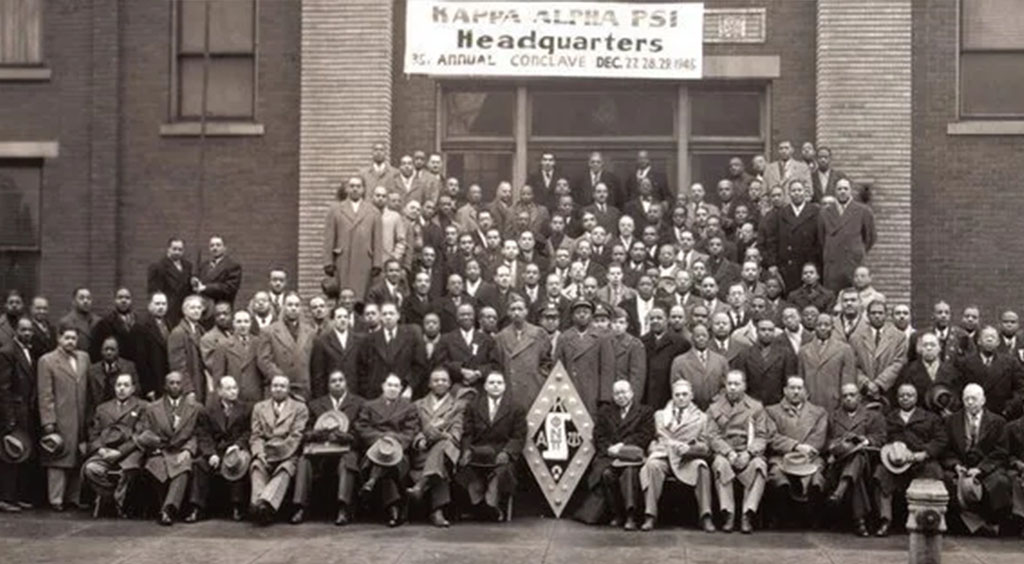
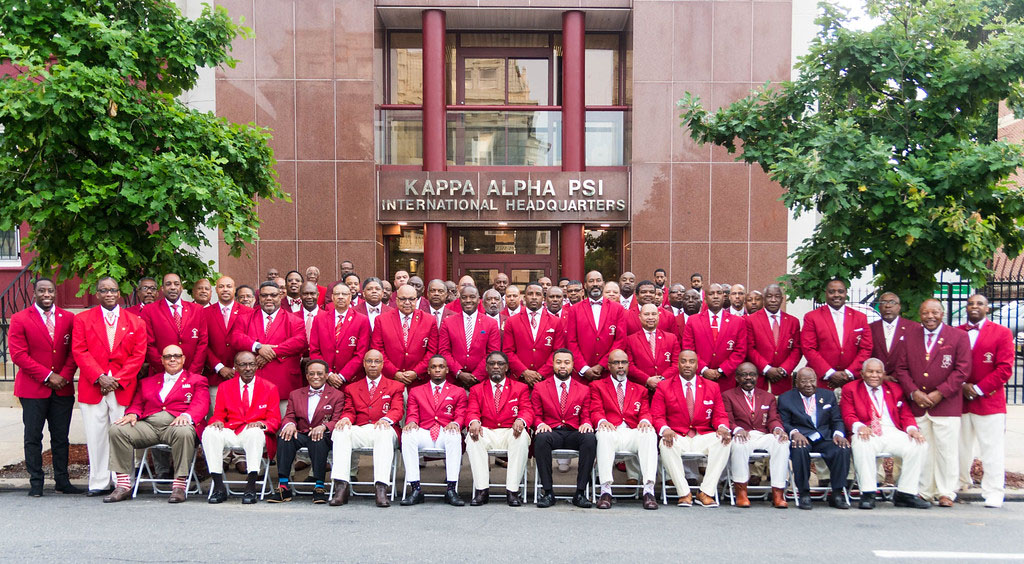
Kappa Alpha Psi, a college Fraternity, now comprised of functioning Undergraduate and Alumni Chapters on major campuses and in cities throughout the country, is the crystallization of a dream.
– The Story of Kappa Alpha Psi

